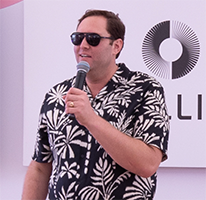If we had a tag cloud that monitored keywords used throughout our articles, some would stand out more than others. And were we to track the cloud over time, we would see some, not too surprising but still, interesting trends. For example, a few years ago the Google tag would have loomed largest, whereas today, it comes in behind Facebook. Flogs would have taken half the cloud but now barely stay present. Apple has come into play, whereas companies like Amazon and eBay (who recently acquired iPhone App Red Laser) have no bearing. Throughout it all, one tag has persisted, and it plays as much of a role today as it always has in performance based marketing. That word is arbitrage. The term has its origins in finance where arbitrage transactions are generally associated with relative low levels of risk. In the internet world, arbitrage is generally associated with risk taking. It is all about risk and uncertainty, the pay per click while getting paid on a per action basis, or getting paid per click but paying for media on a CPM.
From internet to publicly traded companies arb is everywhere, and it’s even in places that I would never have guessed, like medicine. I learned this from a long-time friend in medicine. When we think of medicine, or at least when I think of medicine, I don’t think arbitrage. I think of one of the noble professions that my parents most likely still wish I had entered. I think of a profession where professionals make a wide range of incomes depending on their specialty and geography, where the biggest determinant is whether a doctor practices elective surgery or a type that insurance will cover. In other words, that a Beverly Hills cosmetic plastic surgeon pulls in great money doesn’t come as a surprise. They have expensive procedures and don’t have to worry about whether a person has insurance as it comes from purely discretionary income. What we don’t expect to hear is a scenario where someone who makes money only off insurance does better than a plastic surgeon. And, yet that happens quite frequently.
Perhaps it doesn’t surprise anyone else to learn that the medical profession is screwed up, but the level to which it is and can be manipulated is amazing. In my friend’s scenario, he performs a specialized type of surgery. That surgery takes place over three stages – an initial exam, the surgery, and the post operation exam. The total time for all three is less than two hours, compensation for which he does not have to rely on the patients nor does he have to worry about insurance not accepting the claim. Here’s where it starts to get interesting. First thing to note is that he and any in his field do not have patients directly. All come by way of referral. The second thing to note is that the surgeries themselves take place in a facility owned by someone else. Compensation consists of two parts, a professional services fee and a technical fee. The latter is what can be billed for the time of seeing someone (the cranial activity), the latter goes towards the machines. And, this is where medicine from a billing perspective doesn’t reward what people value. It pays out incredibly well on the technical side but values little the human factor. Primary doctors, the ones there to listen and try and diagnose, never do as well as those that can tap into the technical fee.
In this medical example, success begins with the primary physician, because they have to refer the patient. The tighter the relationship with them, the more patients. There is even a way for the referring physician to make a cut of one of the fees. The second step is the treatment facility. The specialty doctor can actually bring in his own equipment for certain things to get a cut of the technical fee. They can also strike a deal with facilities so that by bringing patients to that facility, they make a percentage of the technical fee the facility gets. Much of it is clever deal making, but some is no different than our version of arbitrage. Buy the machine but make it back up in fees. As he said, it’s not always what is completely best for the patient. There might be a center closer but it isn’t one that benefits the doctor.
When I asked about all this, the answer I received was, that he would never compromise the quality of the care. He specialized in a field where you aren’t on call, get paid highly per hour, figured out the secrets to maximizing billing, and might look to have a patient drive a little further on occasion, but he won’t ever do something that isn’t right. This is where he contrasts his practices to the self-contained version, where the primary physicians own the center and employ their own specialist. In this case they can recommend treatment via the specialist that makes the group the most, regardless if it is the best. That’s where the balance in arbitrage lies. Is the consumer (patient) getting a sub-optimal experience solely for financial gain? Or, is the financial gain the result of creating the opportunity? Arbitrage isn’t bad. It’s in everything we do. We don’t need to look down on it; we just need to make sure that we don’t take advantage of someone else in doing so.
 Network
Network

